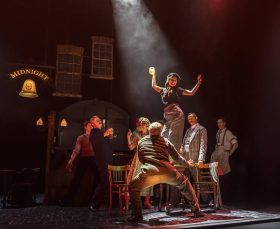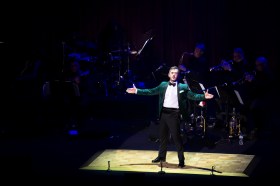Over the past ten years the number of university creative writing courses in the UK has more than doubled. This phenomenal growth is not without its points of debate. Now, with over 130 courses in which you can do creative writing at Bachelors level, 80 at Masters level, and with 25 PhD programs, the UK is the largest provider of creative writing higher education in Europe, and a key world player. But what does this mean? Most creative writing graduates, certainly at BA level, do not end up as practicing writers. Thus: what is the purpose of these degrees?
In part, students studying creative writing at Bachelors level seem to be as much pursuing creative writing as an alternative to pursuing ‘straight’ English literature courses as they are thinking about writing careers. It’s an issue of empowerment: creative writing courses have allowed students ‘back in’ to reading in a way that they feel canonical approaches to literature do not. With this in mind, many in Britain view creative writing first degree programs as a way of improving their understanding of the written word, as much as a way of improving their own uses of it. At Masters level the situation is quite different.
For some time, this level of course was the entry point for Britain’s aspirant novelists. Much of this was due to the success of a few British MA graduates in the late 1970s and early 1980s. These programs appeared attractive breeding grounds for writing careers. Gradually poetry, playwriting and, indeed, media related scriptwriting became part of the MA scene in Britain. Scriptwriting, in fact, has always had an interesting relationship with the growth of creative writing in Britain; though popular, for a while creative writing higher education seemed to mean studying fiction or poetry, and discussions about scriptwriting were less common, despite its popularity. Now there is far more integration and media related creative writing seems at least as widely discussed as prose fiction. There are few, if any courses, in Britain which place an emphasis on what is called in the US ‘creative non-fiction’ but courses in life-writing at MA and at BA level are growing.
Today, in all cases, Masters level creative writing courses in Britain include a mix of people: those with direct interest in pursuing writing careers, those with some interest in pursuing writing careers but who do not see it as the primary reason for doing these degrees, and those who are mostly interested simply in doing these degrees for personal development or enjoyment.
All this is good background to a discussion of the British PhD in Creative Writing. Here, thinking in terms of starting point and current condition, growth has been most intense. Simply put, over the past ten years the number of courses in the UK has tripled. The PhD in Creative Writing, or in Creative and Critical Writing, as is more commonly the case, has long replaced the MA as the ‘exit degree’ for British writers – taking the role occupied by the Master of Fine Arts, the MFA, degree in the USA. But the two degrees are not the same. Whereas the American MFA is a studio based degree most often focusing on the completion of a longer piece of creative writing, the PhD in Britain focuses both on the production of a longer piece of writing (in fiction terms, for example, most often a novel or collection of short stories) and on the creation of a critical response to this work which draws the PhD writer into the exploration of their own work, the work of other writers, and into a whole range of other discussions which locate themselves in the writer’s understanding of ‘what’ they have written, as well as the ‘how’ and ‘why’ of their writing. A good PhD in Creative and Critical Writing is fascinating, both creatively and critically engaging, revealing much about the writing arts and exploring areas of interest that no other university course explores.
Of course, PhDs in creative writing also exist in the USA, and in other countries, Australia for example, but it is the way in which the British PhD in Creative and Critical Writing has now become a focal point for discussions of creative writing education in Britain that is striking. Not only are British universities increasingly offering these degrees, but the UK’s national academic arts research funder, the Arts and Humanities Research Board (AHRB), soon to become the Arts and Humanities Research Council, has actively considered the nature of these degrees and aims to fund projects that link to creative writing research in a similar way to its funding of research in English Literature and Language, History, Music, Languages, Philosophy, Archaeology and so on. One bone of contention, however, is the question of where PhD graduates in creative writing end up. At present, not all British universities are recognizing the relevance or importance of these PhD graduates. Not all have seen that these graduates, many of whom are combining successful writing careers with unique explorations into the nature of the writing arts, are already key contributors to the development of new British writing. Not all realize, in other words, that they have at play here a resource for the development of British writing that is as distinctive as it is lively.
The growth of writing arts education in Britain universities can find its way back to a period before Christopher Marlowe’s writing of Tamburlaine while at the University of Cambridge. But if this 400 year history is to mean very much, universities in Britain, with the support of the AHRB, will now need to engage with the shape and future of research in the writing arts and to make the most of the uniqueness and talent of its growing numbers of doctoral creative writing graduates. If British universities can do this, the future of the writing arts in Britain is looking very bright indeed.




